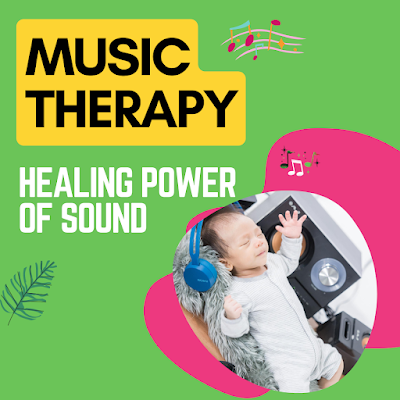Music therapy is the clinical use of music to accomplish individualized goals such as reducing stress and improving mood and self-expression. It is an evidence-based therapy well-established in the health community. Music therapy experiences may include listening, singing, playing instruments, or composing music. Musical skills or talents are not required to participate.
Music therapy may help you psychologically, emotionally, physically, spiritually, cognitively, and socially. A shortlist of benefits includes:
Lowering blood pressure.
Improving memory.
Formal music therapy was defined and first used by the United States War Department in 1945. It helped military service members recover in Army hospitals with occupational therapy, education, recreation, and physical reconditioning.
Music therapy may help with the following:
Behavior disorders.
Mood and anxiety disorders.
Attention-deficit/hyperactivity disorder (ADHD).
Autism spectrum disorders (ASD).
Trauma.
Research in music therapy supports its effectiveness in six areas: psychological, emotional, physical, spiritual, cognitive, and social.
Emotional:
Music can call up repressed (bottled-up) emotions that may then be released.
Music can lessen feelings of isolation.
Improved mood.
Anxiety reduction.
Self-expression.
Stress management.
Physical:
Music can affect the body by changing your heart rate and lowering blood pressure and respiration (breathing) rate.
Improved motor development or processing.
Relaxation and/or improved sleep.
It can physically stimulate conscious or unconscious body movements, such as toe-tapping or large body movements, and improve gait (walking) and speech.
Management of and/or distraction from pain.
Reduced asthma episodes.
Reduced pain.
Help premature infants with weight gain and sleep.
Help people with Parkinson’s disease improve their motor functions.
Spiritual:
Music can open the door spiritually and allow you and your family the opportunity to explore your own spiritual beliefs.
Cognitive:
Music can provide an increased sense of control.
Coping skills.
Lessen the effects of - dementia
Social:
Music can bring people together socially, not just at large gatherings such as parties, weddings, or funerals, but is more informal, intimate, and shared experiences, like a hospital room













0 Comments